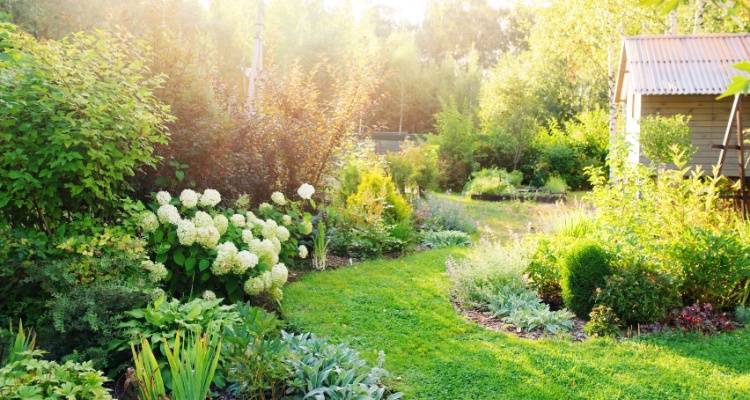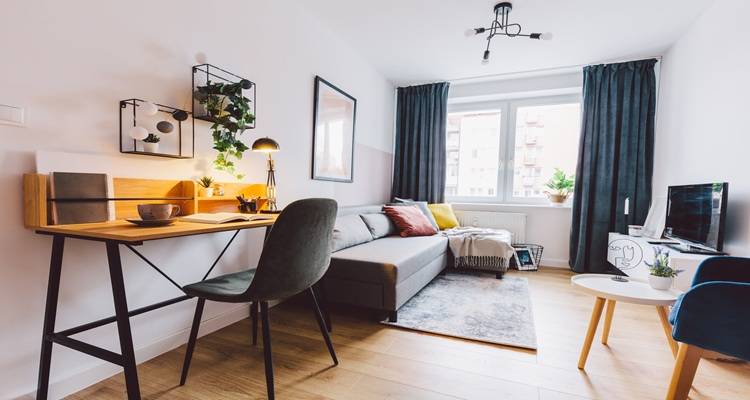33 Ways You Can Go Greener at Home

How to Make Your Home Greener?
We are always looking for ways we can make our homes greener. You can do your bit too by implementing some of the below ways you can go greener at home. You'll be doing your little bit to help combat climate change, by changing what you do at home. We’ve listed 33 ways you can help do your bit to go greener at home and you may even reduce your energy bills.
1. Fit More Insulation
Topping up your loft or roof insulation is the easiest way to go greener, as your heating bills will be reduced. Another way to maximise insulation is to check your walls. Many older properties may have little or no insulation at all, so it is best to get this checked by a specialist.
2. Double Glazing
On average, about 35% of heat is lost through walls and windows. If you have ineffective windows or windows that are in need of repair, this could be higher. Installing effective double glazing will help reduce the cost of heating your home. The right windows can also help keep you cooler in the summer months. Double glazing will also increase security and reduce outside noise
3. Fix Any Leaking Taps
With most homes on a water meter, fixing any leaking or hard to use taps is normally an easy fix. It is a job you can do yourself or get a plumber in to do if you don't have the right tools. You'll save money by using less water and you will be doing your bit to help the overuse of freshwater.
4. Swap Energy Suppliers to Greener Solutions
Many energy suppliers are now offering customers a solution that supplies energy from renewable sources. Eon Energy offers 100% renewable energy from UK wind generators. After you have signed up if you refer your friend you receive £40 each in an eGift voucher.
5. Install Solar Panels

Generating your own electricity to power your home is likely the biggest change you can do to make your home greener. You can receive a significant saving each year on your bills. Over time, installing solar panels will pay for themselves and as technology has improved, the price to install have gotten cheaper over the years. Not ready to add solar to your home? Why not add solar panels to your garden room and power this space with renewable energy. It’s also a great way to increase the value of your home.
6. Smart Heating Solutions
Installing smart heating solutions is a great way to significantly reduce your bills at home. Control how warm your home is on the go. You can even change the temperature of different rooms, so you're not fully heating the whole house to the maximum temperature. Book a professional to install smart heating solutions for maximum benefits.
7. Underfloor Heating
Underfloor heating typically uses between 15-40% less energy than traditional radiators. This is because you are heating heats the whole room from the floor upwards. You can also use underfloor heating at a lower temperature and for less time. Using less energy means you will also be saving on your home bills.
8. Turn Down the Thermostat
If you don't have smart heating, you can choose to turn down your thermostat a couple of degrees and put on a jumper. 21°C is the ideal temperature for us to be comfortable. Turn it down a couple of degrees and pop a jumper on instead.
9. Shower Instead of Bath
Having a shower will use less water than a bath, but also you will use less power to heat the required about of water. You can also use a low Flow shower head that will use less water than traditional showerheads.
10. Install a Low-Flow Toilet
Older toilets use quite a lot of water with each and every flush. Upgrading your toilet if you are upgrading your bathroom is a great way to use less water every day.
11. Grow Your Own Food
There is something about growing your own food that is more satisfying. It's also not going to be sprayed with chemicals and flown or driven miles around the country, so it has less carbon footprint.
12. Create Your Own Compost Pile

Use your food and garden waste to create your own compost pile. You will be able to add this to enrich the soil when you are growing your own food and your garden bloom.
13. Collect Rainwater for the Garden
Collecting rainwater from the downpipes of your home is a great resource to keep the garden watered in the dryer months of the year and also means you use less water.
14. Encourage Wildlife into Your Garden
Encouraging insects and wildlife into your garden will help flowers pollinate and bees to create more honey. Building a little bug house in your garden is a great idea and kids will love exploring which bugs they can find.
15. Swap Your Bulbs to LED Lighting
Are you still using incandescent bulbs around your home? Did you know that LED lighting and bulbs use less energy and can give a much nicer warming glow? You can even connect smart lights that can offer millions of colour options for you to enjoy around your home.
16. Replace Inefficient Appliances
If your freezer is always frosting up, it might be time to upgrade. If you use better Energy star rating appliances in your home. As technology advances, so does the efficiency of appliances around the home. Designed to use less energy, they can help lower your bills significantly and save you money over time.
17. Use Public Transport (or cycle)
Public transport runs on daily basis, so why not use it. You'll save on running costs of your own vehicle and less hassle of trying to find a parking space in town.
18. Recycle More
Many items come with recyclable packaging now. Choosing an eco-friendly option is better. Packaging that can be recycled helps, as many items don't biodegrade and some are a limited resource.
19. Buy With Less Packaging
Less packaging on items we buy means that it takes less power to get to the shelf. There is also less energy used in producing this item. Preferably the packaging will be recyclable. Try buying your fruit and vegetables, such as bananas, apples, carrots, onions etc without plastic, it can even work out cheaper buying it in plastic as it costs less per kilogram. Tip: put your fruit and veg in a separate reusable bag so it doesn’t get crushed and you don’t need to put it in the trolley.
20. Reusable shopping bags
Using a bag for life is a good start, but these are still made from plastic that can't widely be recycled. Bags made from biodegradable material will last longer, are stronger and when they can no longer be used, can be returned to the earth.
21. Buy Local
Produce bought closer to home has fewer delivery miles on it. Using less CO2 for it to reach the shelves. It also helps support local farmers and local businesses. You'll find it probably last longer too, as it hasn't had to travel far before being packaged and on the shelf.
22. Reduce Your Food Waste
Plan your meals and only buy and use the food you need. When doing a weekly shop, plan the meals for the week based on when the use-by dates fall. It might be tempting to eat the pizza or chicken nuggets but eating fresh is better and will help reduce your waste.
23. Swap to Paperless Billing
For your home bills, you can swap to paperless billing, so you will not be reliant on a bill landing on the mat. You can set up a dedicated email address for bills only and keep them organised. You will also be better prepared if you move home, as you'll not miss paper bills going to the wrong address.
24. Use Reusable Jars For Storing Food
If you shop local, you can often take along your own storage jar to be reused. This helps the local shop reduce their costs for packaging and also helps reduce waste we produce as a home.
25. Donate Unused Items to Charity
If you have something you no longer have a use for or no longer need, you can donate these items to charity shops. This helps find a new owner that will be grateful for the item, as they may not be able to afford a new item.
26. Buy From Local Charity Shops
Local charity shops are a hive of items waiting to be discovered. Many items are like new and are offered at a much-reduced price. Books, teapots or furniture are all widely available. Save money and save something else from being tossed in a landfill zone.
27. Introduce Digital Free Days

Limit your use on at least one day a week of anything digital. Take a moment to play a board game, go for a walk or just sit and read a book. Switch off from social media, streaming endless TV and take a moment for you. It’s a great time to exercise more too.
28. Dry Your Washing on the Line
In the UK it can be hard to find a day when it's not raining, but do your best to use an outside washing line to dry your clothes. Using a tumble dryer can easily become a habit, but if it is dry out, hang your clothes on the line.
29. Turn Off Electrical Items at the Plug
When you go to bed, pull the plug. Leaving your electrical items on standby can still use a significant amount of electricity.
30. Use a Gas Hob Kettle Over an Electric One
If you use an electric kettle, only boil the amount of water or at least the minimum you need, as a kettle is a big user of electricity. A more effective option is to use a kettle on a gas hob.
31. Batch Cook Food
Time taken to cook food is one of the main ways we use electricity or gas in the home. If you can reduce the number of times in a week you have to wait for the oven to get hot, you can batch cook items and choose to eat them cold or gently reheat them in a pan and use less power.
32. Wash Your Clothes at a Lower Temperature
Wash your clothes at a lower temperature. Either 30°C for delicate items or 40°C for general items is better. Let the detergent do the work for you, this is the optimal temperature they are designed to work at.
33. Take Your Own Reusable Mug
Ok, you probably use a normal mug at home, but instead of grabbing a disposable mug at the coffee shop, carry a travel or reusable mug with you and save on waste, as most takeout mugs are not able to be recycled. Following this, buy yourself some reusable metal straws and take some in the car with you. Even though Fast food paper straws are biodegradable, they cannot be recycled at this moment in time. I personally prefer using my metal straw when slurping down a fast-food milkshake instead of a paper straw!
We hope you found these tips useful and can integrate some of these into your everyday life!
Last updated by MyJobQuote on 23rd April 2024.







